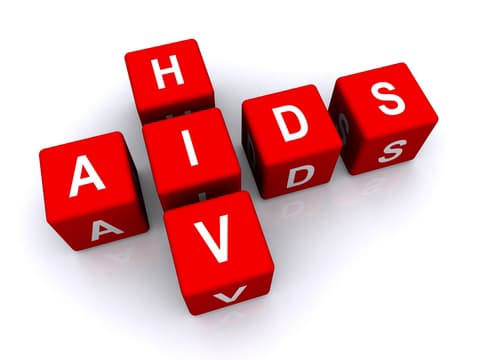Published
5 years agoon

He said with a current national adult prevalence of 1.7 per cent, Ghana had witnessed a decline in HIV prevalence from 3.6 per cent in 2004 to 2.0 per cent in 2019, indicating that although there had been some progress, the disease was still formidable in the country.
Dr. Kuma-Aboagye said this at the launch of World AIDS Day in Accra yesterday.
The event, slated for December 1 — when it is held annually — is on the global theme: “Global solidarity, shared responsibility”, with an adopted sub-theme: “Stay safe, Let’s end AIDS by 2030”.
GHS data
Dr. Kuma-Aboagye said “an estimated 342,307 of the approximately 38 million people estimated to be living with HIV worldwide are in Ghana, and 153,901 of the 25.4 million had access to treatment as of the end of 2019”.
He said a review of the data so far showed that the GHS’s overall uptake, including HIV services, was below expected targets due to the COVID-19 pandemic.
He said the impact of the pandemic was, however, significantly mitigated by the timely provision of clear guidelines and commodities for service delivery, continuous monitoring and engagement with stakeholders to address challenges during the second quarter of the year.
He, therefore, advised that staying safe from HIV infections meant adopting a comprehensive combination of prevention and promotion strategies, including the use of condoms and accessing testing and treatment services.
He said due to the new public health threats that were likely to emerge after the COVID-19, it had become very important for people living with HIV to adhere to the anti-retroviral therapy (ART).
“The public must take all necessary precautions to remain free from HIV, while we work harder to find a lasting cure for HIV. Till the latter is achieved, let’s maintain the high management record and success through adherence to ART, as we have achieved with the COVID-19,” the director-general said.
Achieving target
The Director-General of the Ghana AIDS Commission, Mr. Kyeremeh Atuahene, said this year’s celebration was unique, as it marked the end of the National HIV and AIDS Strategic Plan 2016-2020, adding that it was an opportunity for the country to present the achievement of that plan, while developing another strategic plan for the years ahead.
He said ending AIDS by 2030 was feasible only if stakeholders worked in concert with a renewed commitment and the active participation of the public in order to achieve the target.
“All Ghanaians are called upon to help reduce new HIV infections by each one of us taking responsibility for self-protection at all times. We should also support Persons Living with HIV to take their anti-retroviral drugs religiously to attain viral suppression and reduce AIDS-related deaths,” he added.
Slow decline
The Presidential Advisor on HIV and AIDS, Dr. Mokowa Blay Adu-Gyamfi, observed that HIV prevalence among the key population had improved significantly over the past decade, indicating that the figures had decreased from 11.1 per cent among female sex workers in 2011 to 4.6 per cent in 2020.
Yet, she said, the pace of decline among the general population had been quite slow, signaling that there was the need for the country to up its game to address the challenges confronting the national response.
She said this year’s commemoration, therefore, should provide the country with the opportunity to recognise both the successes and the challenges and re-strategise to achieve the targets for 2021-2025
Source: graphic.com
